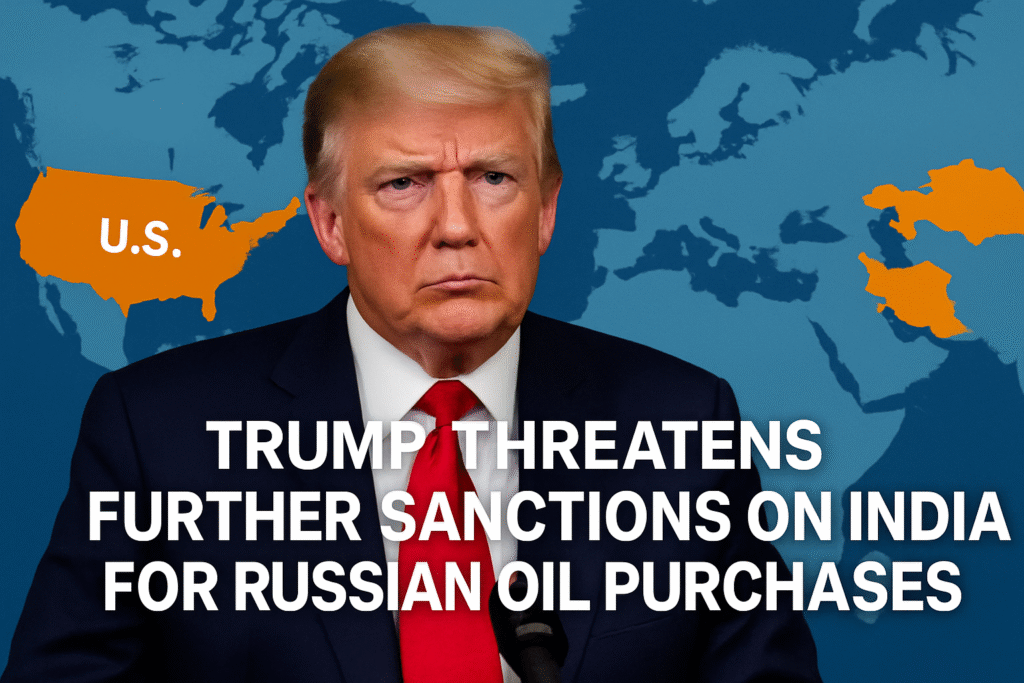
WASHINGTON, Sept. 4, 2025 – President Donald Trump escalated threats against India on Wednesday, warning of potential “phase two or phase three” sanctions while defending his 50 percent tariff strategy during a tense exchange with a Polish journalist.
Trump bristled when questioned about his approach to Russian President Vladimir Putin, pointing to India as evidence of his tough stance on Moscow’s allies. The president has imposed 25 percent reciprocal tariffs on Indian goods plus an additional 25 percent levy for Russian oil purchases.
“How do you know there’s no action? Would you say that putting secondary sanctions on India, the largest purchaser outside of China, they’re almost equal, would you say there was no action? That cost hundreds of billions of dollars to Russia,” Trump said. “And I haven’t done phase two yet or phase three.”
The escalation comes as India accelerates partnerships with European allies amid mounting U.S. pressure. India and Germany announced plans this week to double bilateral trade from the current 50 billion euros, with External Affairs Minister S. Jaishankar calling for expedited EU-India free trade negotiations.
“We are seeing very sweeping changes on the global strategic landscape, we’re also seeing a lot of volatility on the global economic landscape,” Jaishankar said during a joint press conference with German Foreign Minister Johann Wadephul. “And I think together they make a very powerful case for India and the European Union and India and Germany to work much more closely with each other.”
Prime Minister Narendra Modi has maintained defiance against U.S. pressure, vowing in August not to compromise farmers’ interests despite economic costs.
“India will never compromise the interests of its farmers, its cattle rearers and fisherfolk,” Modi said. “I know I’ll have to pay a big price for this personally, but I’m prepared.”
Trump’s aggressive tariff approach faces legal challenges after a federal appeals court ruled 7-4 that his emergency tariffs exceed presidential authority under existing law. The tariffs remain in effect until Oct. 14 pending a Supreme Court appeal.
The confrontational approach toward India — a key strategic partner in the Indo-Pacific — risks undermining broader U.S. geopolitical objectives while pushing New Delhi toward closer European partnerships, analysts said.
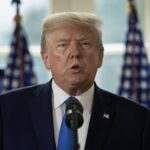


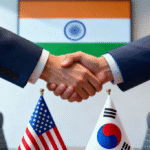



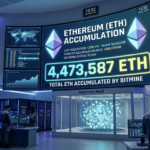

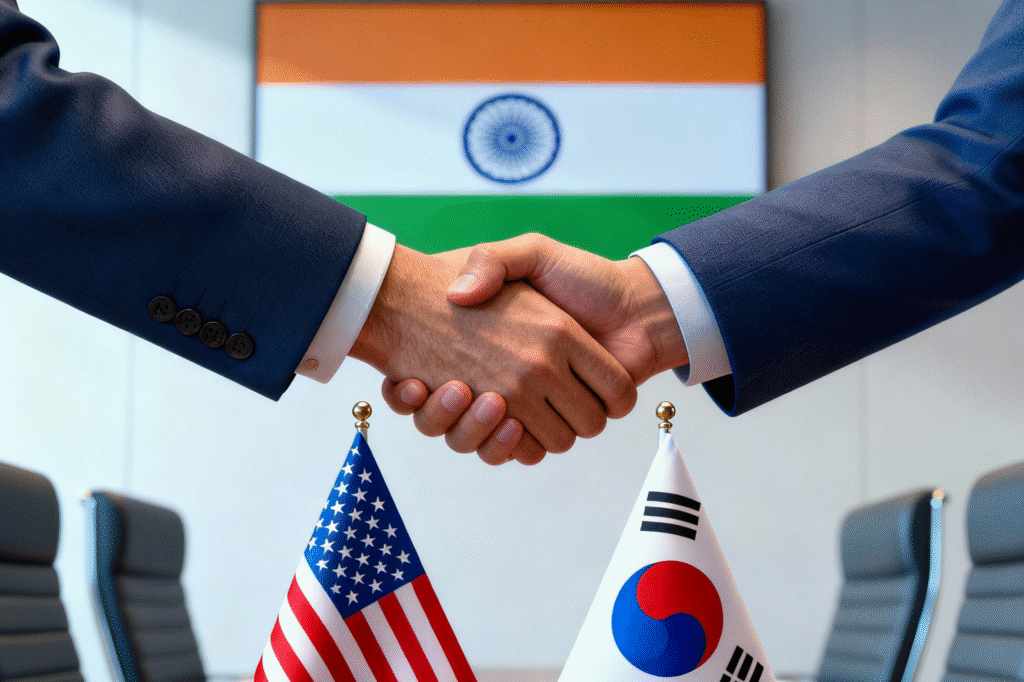

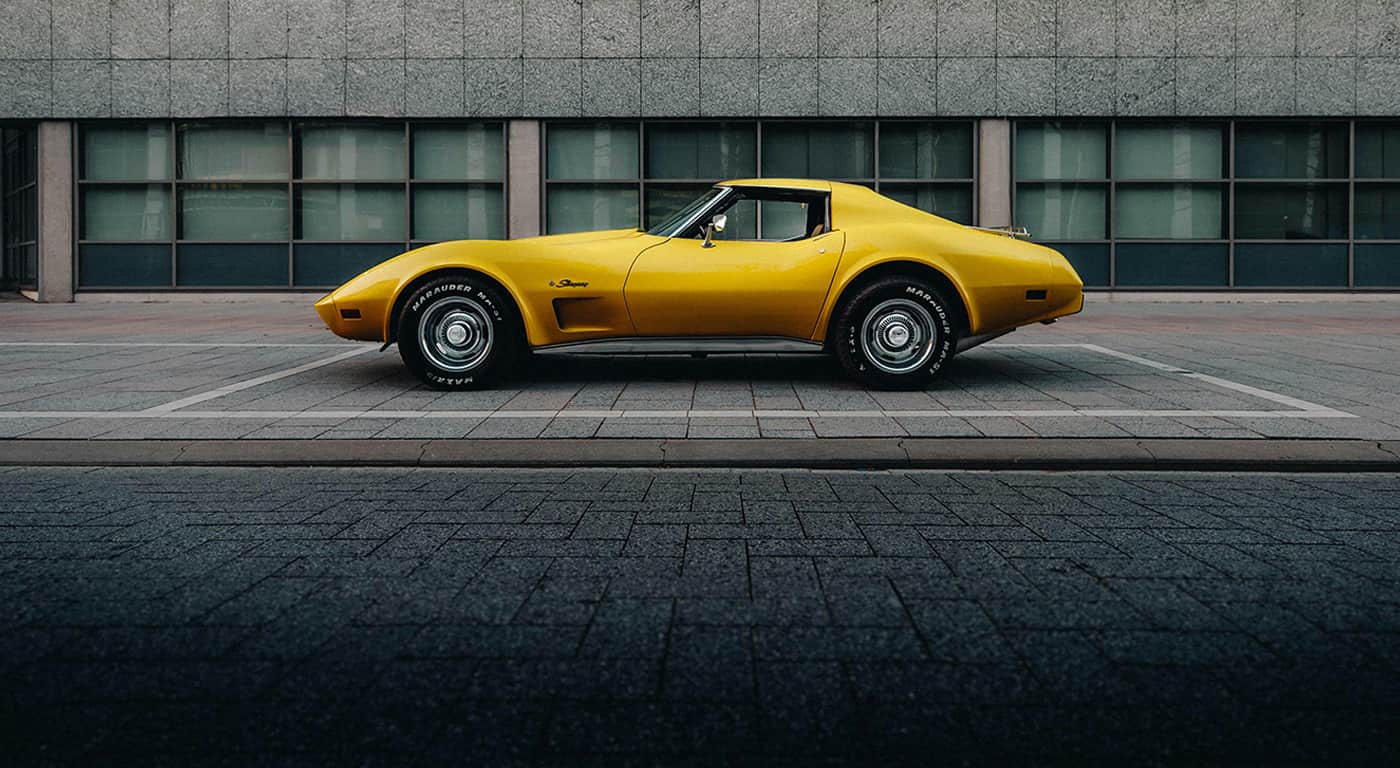
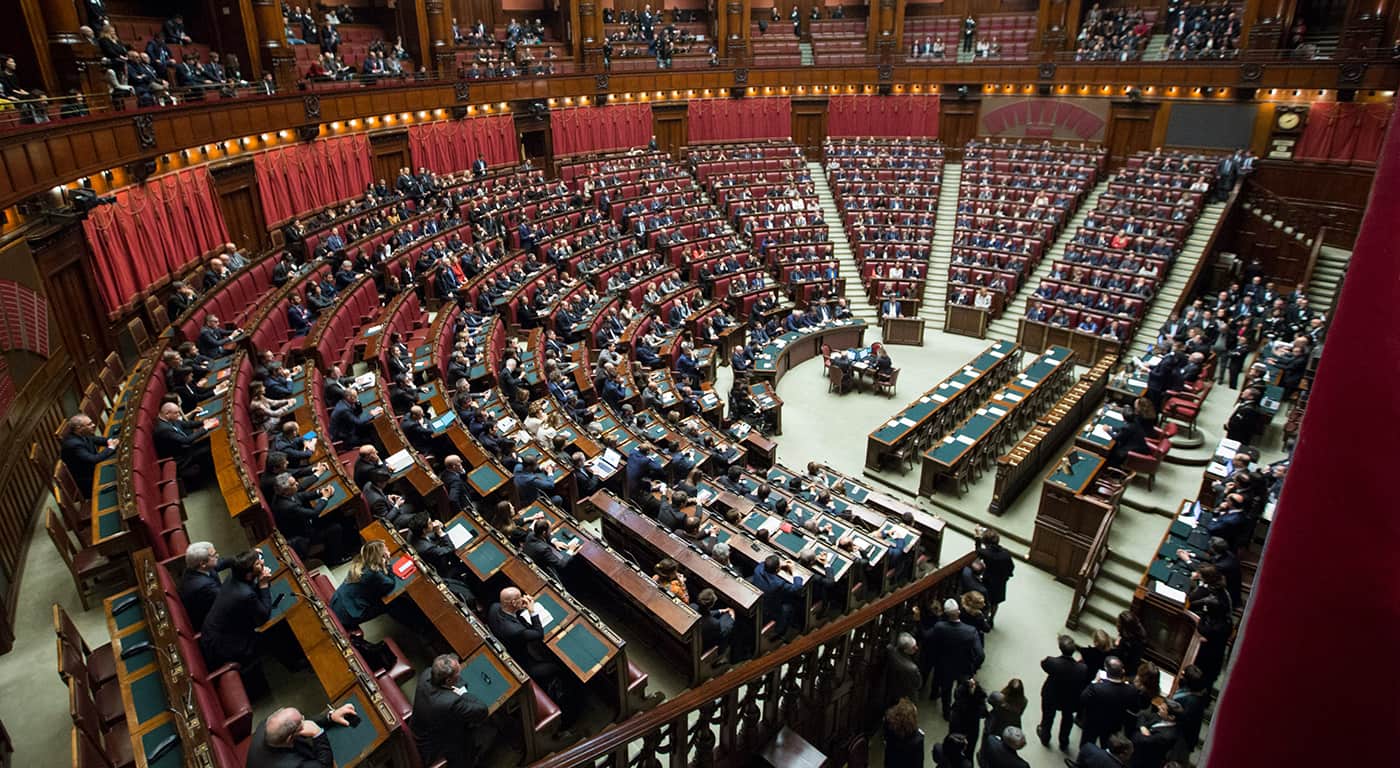



 Join our Telegram Channel
Join our Telegram Channel